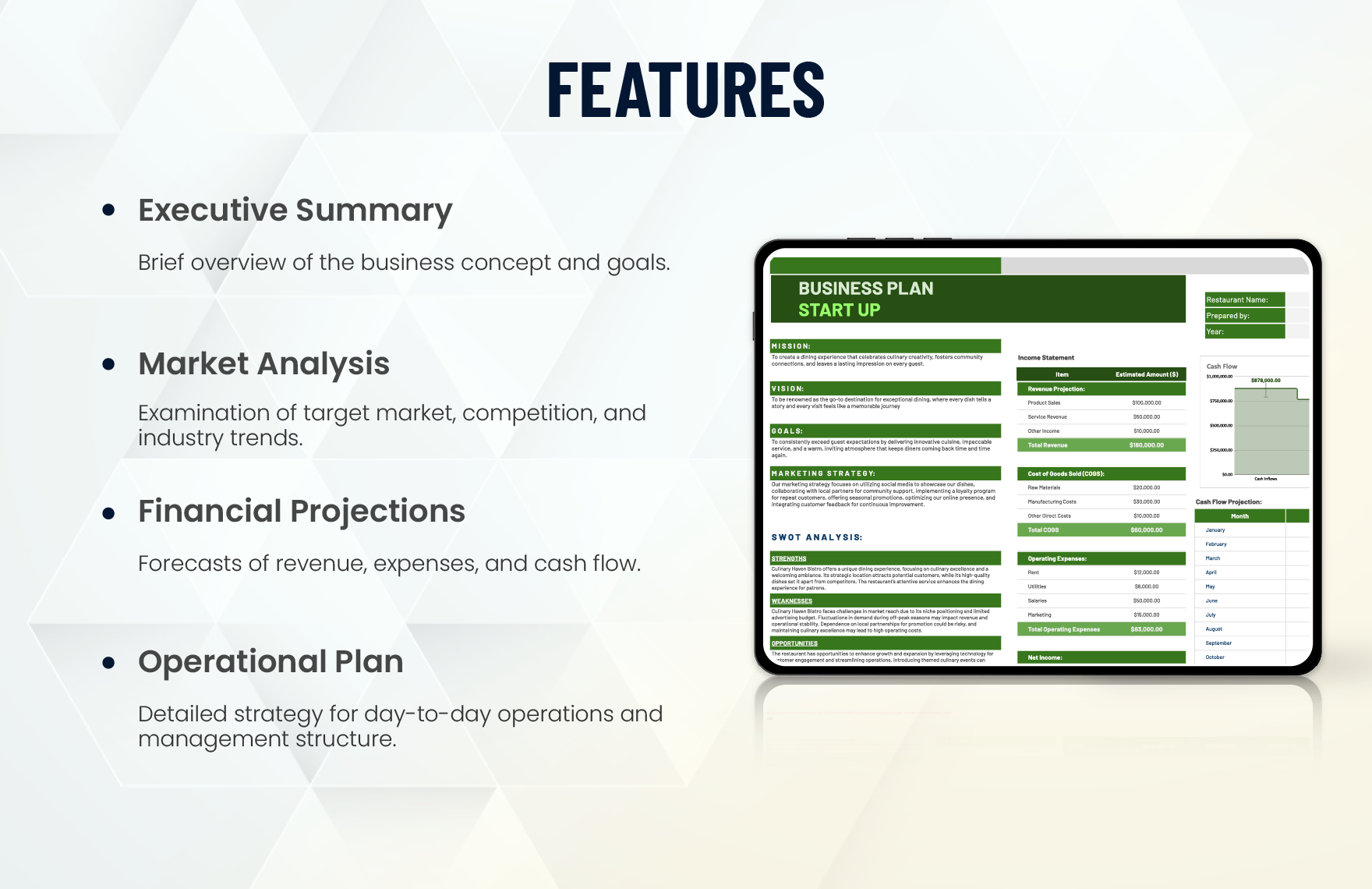When starting a new business, having a well-thought-out plan is crucial for success. A business plan serves as a roadmap for your startup, outlining your goals, strategies, and financial projections. It helps you stay focused and organized as you navigate the challenges of launching a new venture.
Creating a business plan can be overwhelming, especially for first-time entrepreneurs. However, using a template can simplify the process and ensure that you cover all the essential elements of a successful business plan. With a template, you can customize the document to fit your unique business idea while following a proven structure.
Business Plan for Startup Template
When using a template to create your business plan, start by outlining your business concept and value proposition. Describe your target market, competition, and unique selling points. Include details about your products or services, pricing strategy, and marketing plan. This section sets the foundation for the rest of your business plan and helps investors understand the viability of your idea.
Next, outline your organizational structure and management team. Detail the roles and responsibilities of key team members, their backgrounds, and how they contribute to the success of the business. Investors want to know that you have a capable team in place to execute your business plan effectively.
Financial projections are a critical component of any business plan. Use the template to create detailed revenue forecasts, expense budgets, and cash flow projections. Include key metrics such as break-even analysis, return on investment, and growth projections. This section demonstrates to investors that you have a solid understanding of your financials and a realistic plan for profitability.
Finally, wrap up your business plan with an executive summary that highlights the key points of your plan. This section should grab the reader’s attention and provide a concise overview of your business concept, market opportunity, competitive advantage, and financial projections. The executive summary is often the first thing investors read, so make sure it is compelling and informative.
In conclusion, using a template to create your business plan can save you time and ensure you cover all the essential elements of a successful startup plan. By following a structured approach, you can create a comprehensive document that effectively communicates your business idea and strategy to potential investors and stakeholders.
